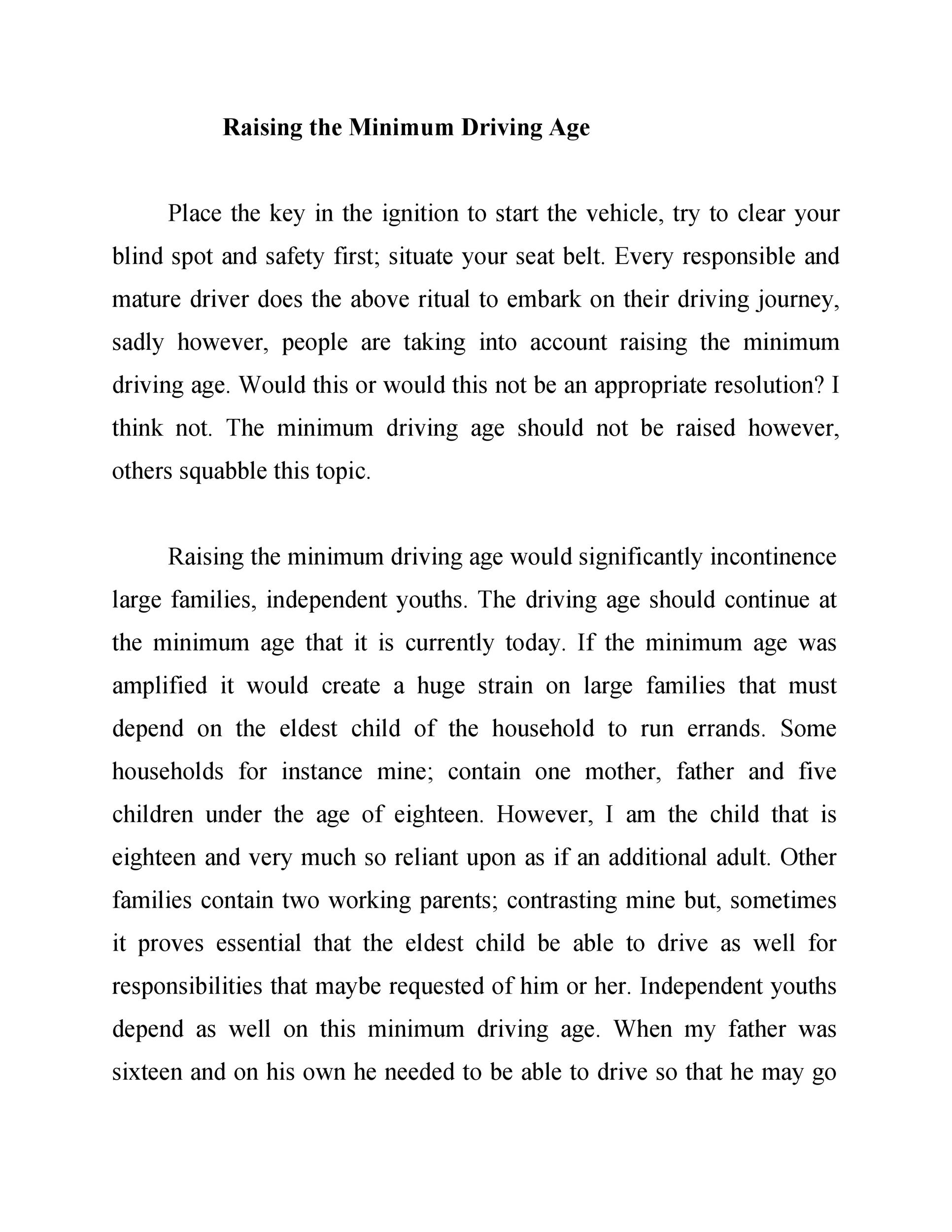· A persuasive essay is a piece of writing that's designed to sway a reader to one point of view or another. They're often set by teachers with a question that allows you to pick a side. That way, you can argue the case that you believe in the most. A good persuasive essay is well researched, and takes into account the biases of the reader A persuasive essay is a type of academic essay assigned to students of all grades and levels. It requires strong evidence and sound reasoning to convince the reader to accept a particular point of view. Therefore, persuasive essay writing is considered as a big challenge · Persuasive essays, like argumentative essays, use rhetorical devices to persuade their readers. In persuasive essays, You should use multiple types of evidence carefully when writing a persuasive essay. Logical appeals such as presenting Persuasive essays generally have 75%(32)
Persuasive Essay Examples - Free and Easy Samples
The ancient art of rhetoric dates back to the Classical period of ancient Greece, when rhetoricians used this persuasive form of public speaking to address their fellow citizens in the Greek republics. As time went on, rhetoric remained at the center of education in the western world for nearly 2, years. In our modern world, rhetoric is still an integral part of human discourse, utilized by world leaders and the persuasive essay alike to argue their points of view.
Write persuasive essays with confidence. Grammarly can help. Get Grammarly. To be as convincing as Aristotle on the stand, your persuasive essay must be based on sound logic and factual evidence that support the persuasive essay overall argument.
As you begin to think about writing a persuasive essay, here are several tips that will help you argue your topic like a true rhetorician. The first step in writing a persuasive essay is choosing a topic and picking a side. If the topic is something you believe in, the persuasive essay, it will make the entire experience of researching, writing, and arguing your perspective more personal. Choosing a topic that appeals to you on an emotional or sentimental level will make its defense easier.
Every argument has a counterargument—this is the persuasive essay of the staples of rhetoric. To convince your reader to agree with you, you must be knowledgeable of the opposing side. As important as it is to thoroughly research your topic, identifying and studying both sides of the argument will help you develop the strongest supporting evidence possible.
During the research process, gather as much information as you can about the topic at hand. One of the most important elements of your persuasive essay is your thesis statement, the persuasive essay, which should tell readers exactly what your stance encompasses. And how will I convince my readers that the argument is sound? Outlining your paper will give you a clear view of your argument and the way it develops. Think critically about the strengths and weaknesses of your argument—where would it be most effective for you to introduce your strongest supporting evidence?
Instead, use your outline to get organized from the outset, anchoring each point in evidence, analysis, the persuasive essay, and counterargument.
List out all of your major claims and the persuasive essay research that supports each point. Creating a working structure will allow you to break down your argument in a logical and concise order, which will make the writing process more straightforward. The most successful rhetorical arguments draw on three main elements: ethos ethical reasoninglogos logical reasoningand pathos passionate reasoning. If amassed perfectly, the persuasive essay, these three components will make your argument so powerfully robust that nobody could disagree.
However, this is easier said than done; even master rhetoricians struggle to find a balance of these three elements. Logically, your points the persuasive essay be based in fact and progress in a way that makes sense. Passionately, the persuasive essay, you should emphasize your evidence and use strategic repetition to compel your audience. The key is to find a harmony or balance among these three elements, writing with integrity and empathy.
You can only give them the right information, so that they can convince themselves. Real-time suggestions, wherever you write. How to Write a Persuasive Essay Kelly Konya. Writing, grammar, the persuasive essay communication tips for your inbox.
Write with confidence. Get real-time suggestions wherever you write.
how to write a persuasive essay by TIM
, time: 7:24How to Write a Persuasive Essay: Step-by-Step Guide

· A persuasive essay is a piece of writing that's designed to sway a reader to one point of view or another. They're often set by teachers with a question that allows you to pick a side. That way, you can argue the case that you believe in the most. A good persuasive essay is well researched, and takes into account the biases of the reader A persuasive essay is a type of academic essay assigned to students of all grades and levels. It requires strong evidence and sound reasoning to convince the reader to accept a particular point of view. Therefore, persuasive essay writing is considered as a big challenge · Persuasive essays, like argumentative essays, use rhetorical devices to persuade their readers. In persuasive essays, You should use multiple types of evidence carefully when writing a persuasive essay. Logical appeals such as presenting Persuasive essays generally have 75%(32)
No comments:
Post a Comment